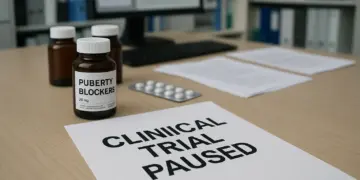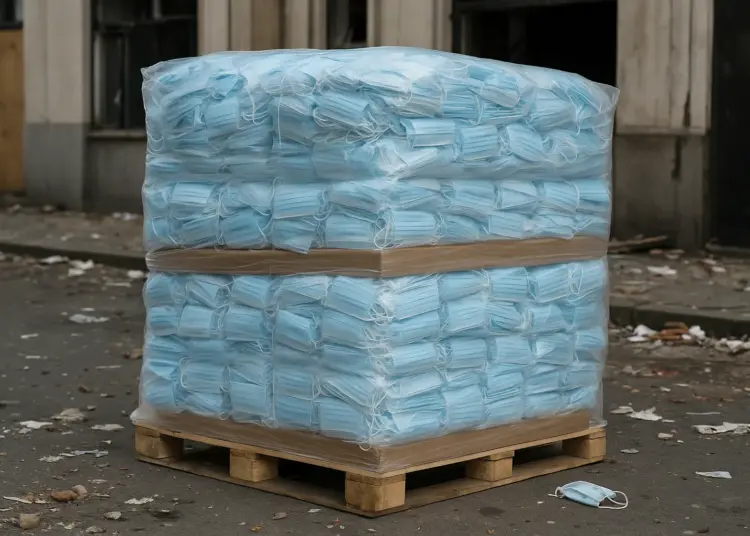Story Highlight
– UK bought non-compliant face masks from Ayanda.
– High Court ruled VIP PPE supplier lane was unlawful.
– Ayanda’s contract investigated; claims rejected by judicial review.
– HMRC ensures tax compliance; tackles fraud allegations actively.
– Government seeks £148mn recovery from PPE Medpro supplier.
Full Story
Thousands of face masks procured by the UK government from Ayanda Capital were deemed unfit for use due to non-compliance with basic safety regulations, although some products supplied by the company met the necessary standards. This revelation comes in the wake of scrutiny surrounding the procurement process for personal protective equipment (PPE) during the Covid-19 pandemic.
In a significant judgement issued in 2022, the High Court found that the UK government had behaved unlawfully by operating a “VIP lane” designed for suppliers of PPE who had connections to political figures or government officials. The case was initiated by the Good Law Project, an activist organisation focused on government transparency and accountability. Despite the ruling, the court concluded that Ayanda and other suppliers would have still been prioritised for procurement due to the large quantities of PPE they were capable of providing, rendering the lane’s discrimination somewhat moot.
In response to the allegations and ongoing scrutiny regarding its role in the PPE procurement process, Ayanda stated that its dealings with the Department of Health and Social Care had already undergone an extensive investigation in relation to the case initiated by the Good Law Project. The company asserted, “The judicial review rejected all the Good Law Project’s claims in respect of Ayanda.”
As the controversy around PPE procurement intensifies, HM Revenue and Customs (HMRC) reiterated its commitment to ensuring compliance with tax obligations. A spokesperson for HMRC emphasised the agency’s responsibility to tackle allegations of tax fraud, stating, “It is our duty to ensure everyone pays the right tax under the law. We have a wide range of civil and criminal powers to tackle allegations of tax fraud, including the use of powerful civil penalties and criminal prosecutions.”
In a parallel situation, the UK government is working to recover £148 million from PPE Medpro, another medical supplier implicated in providing subpar equipment during the pandemic. A recent ruling confirmed that PPE Medpro breached the standards required for NHS-use gowns, failing to meet critical sterility levels. Currently, the company is in administration, with reports indicating it possesses less than £1 million in assets while owing £39 million in tax liabilities.
The implications of these procurement decisions raise broader questions about the integrity of the systems that were implemented during the height of the pandemic. The VIP lane, while designed to expedite procurement, has been heavily criticised for its lack of transparency and accountability. Critics argue that preferential treatment given to certain suppliers undermined the purchasing process, potentially compromising the safety of healthcare workers and patients alike.
Analysts have pointed out that the issues with PPE procurement are indicative of larger systemic problems within governmental procedures, particularly in times of crisis. The reliance on connections rather than objectively assessed qualifications may have led to serious ramifications, highlighted by the procurement of unfit PPE and the subsequent health risks involved.
As investigations and recoveries continue, both Ayanda and PPE Medpro find themselves at the centre of a debate that encompasses public trust in governmental procurement practices amidst a global health emergency. Observers will be watching closely to see how the UK government addresses these issues and whether steps will be taken to reform procurement processes to prevent similar situations in the future.
In navigating this complex landscape, stakeholders are clamouring for greater oversight and more robust frameworks to ensure that public safety remains paramount. The outcome of these investigations might not only shape the future of the implicated companies but also redefine how public contracts must be approached in urgent situations, merging speed with accountability to safeguard public interest.























This case highlights serious failings in procurement and quality assurance that put frontline workers at risk. Transparent, accountable processes are essential to ensure contracts are awarded on merit and that PPE meets required standards. Lessons must be learned and robust safeguards implemented so public health is never compromised for speed or political connections.
This situation highlights serious failures in procurement oversight that directly affect worker and public safety. When emergency buying routes bypass standard checks and political connections influence supplier selection the result can be unfit equipment and eroded public trust. Robust, transparent procurement controls independent quality assurance and clear accountability for decisions are essential to ensure PPE meets required standards and to prevent similar risks in the future.
This case exposes serious weaknesses in how emergency procurement was handled and the consequence of prioritising speed and connections over rigorous quality checks. Public confidence depends on transparent processes, independent testing and clear accountability when suppliers fail to meet standards. Lessons must include stronger oversight, mandatory third party verification of PPE and protections for whistleblowers so that future public health responses do not repeat the same mistakes.
This raises serious concerns about how public safety was compromised by procurement practices. If masks supplied to frontline staff did not meet standards the process failed those relying on protection. The existence of a VIP lane and links between suppliers and political figures undermine transparency and make it harder to hold decision makers to account. Independent investigations and prosecutions where appropriate are needed, and procurement rules should be reformed to ensure robust quality assurance, clear conflicts of interest checks and full public transparency so that trust can be rebuilt and frontline staff are properly protected.